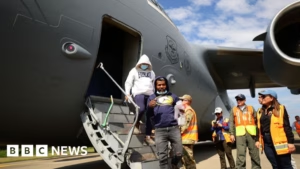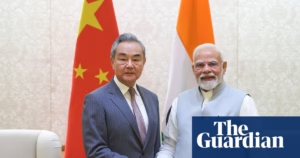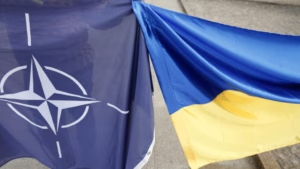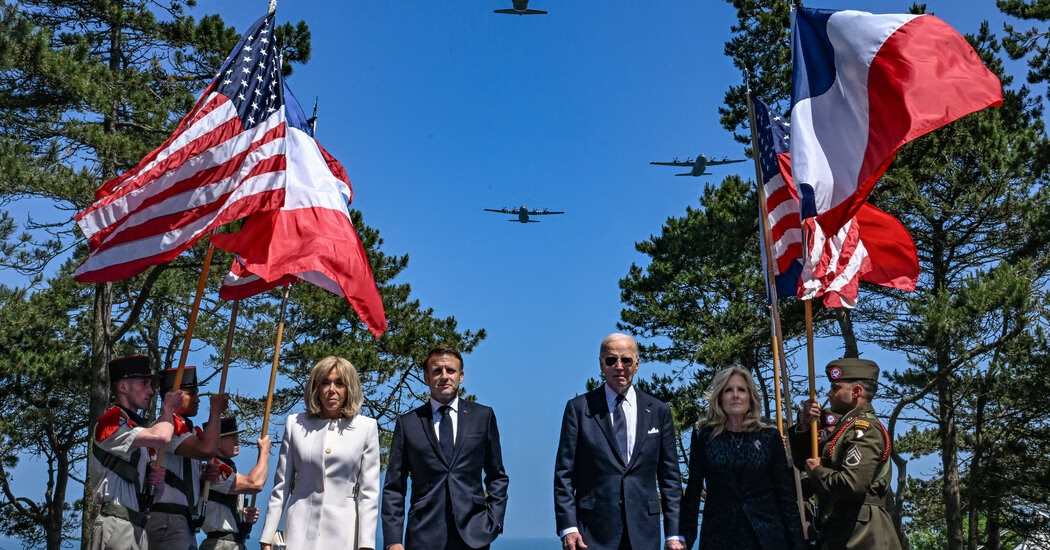Recalling the 80th anniversary of D-Day, which took place 11 months ago on the beaches of Normandy, serves as a chilling reminder of the pivotal moment that celebrated the steadfast alliance between the United States and Europe. Amidst the solemn commemorations that marked this historical event, President Joseph R. Biden Jr., standing in solidarity with French President Emmanuel Macron, underscored the unity of NATO, declaring it to be “more united than ever.” He pledged that the alliance would not withdraw its support, as doing so would lead to the subjugation of Ukraine and potentially ignite even greater conflicts.
However, the geopolitical landscape has shifted dramatically in less than a year, leaving many Europeans uncertain whether to regard the America under President Trump as an ally or an adversary. In an interview, Rima Abdul-Malak, a former French Minister of Culture, articulated the alarming contrast, stating, “It’s night and day,” referring to the profound impact President Trump’s policies and rhetoric have had on international relations and the uncertainty they’ve inspired globally.
This dramatic shift has eroded the once unshakable bonds that sustained peace and prosperity across the Atlantic. Under President Trump, trans-Atlantic relations have witnessed an unprecedented dismantling of the established global order. As Paul Valéry presciently noted in 1940, reflecting on the速ное collapse of France at the hands of Nazi Germany, “We are on a terrifying and irresistible slope. Nothing that we could fear is impossible; we can fear and imagine almost anything.” This sentiment finds a resonance even today, amidst a world that has become more interconnected yet simultaneously more volatile.
The fear of an overreach of executive power and the erosion of civil liberties and democratic norms under President Trump have led to parallels being drawn to the specter of a burgeoning police state. The international community, including Europeans, have been drawn into this vortex of uncertainty and fear, exemplified by their precautions such as acquiring secure phones for trips to the United States, akin to measures one might take when traveling to a more authoritarian state.
This effectuation of authoritarian tendencies and the denigration of established democratic institutions and freedoms, including the targeting of universities, international students, and judicial independence, have been at the core of President Trump’s agenda. His public denigration of foreign leaders and disdain for alliances underscore a recalibration of international relations, steering towards autocracy rather than democracy.
Nonetheless, the European Union is not relinquishing its sovereignty quietly. In response to these perceived threats to its autonomy and values, Germany and France are moving towards what they describe as “independence” and “strategic autonomy” from Washington. This marks a significant shift, with discussions even exploring the possibility of a joint Franco-German photograph on the D-Day beaches, symbolically echoing the reconciliation and unity of former leaders.
Yet, Europe’s unity against this resurgence of authoritarianism and nationalism is not absolute. The rise of far-right parties and a swell of nationalism and anti-immigrant sentiment across Europe reflect a deeper fracture, echoing the socio-political divisions witnessed in the United States. Despite these internal divides, there persists a collective memory and commitment to the preservation of freedom and democracy, in stark contrast to the darker pages of its history, including the Vichy regime.
As Europe grapples with its identity and place in a shifting world order, Robert Paxton’s reflections on Vichy France serve as a poignant reminder of the importance of standing by one’s values, even in the face of state mandates. “The deeds of occupier and occupied alike suggest that there come cruel times when to save a nation’s deepest values one must disobey the state,” Paxton observes. This echoes a call to carbide for the soul of democracy and values that the United States and Europe have long cherished.
In essence, despite the challenges and the regression witnessed in recent years, there is a determination among European leaders to assert their sovereignty and maintain the legacy of freedom and democracy that was so fiercely fought for in the past.
Source: https://www.nytimes.com/2025/05/08/world/europe/europe-ve-day-trump.html




